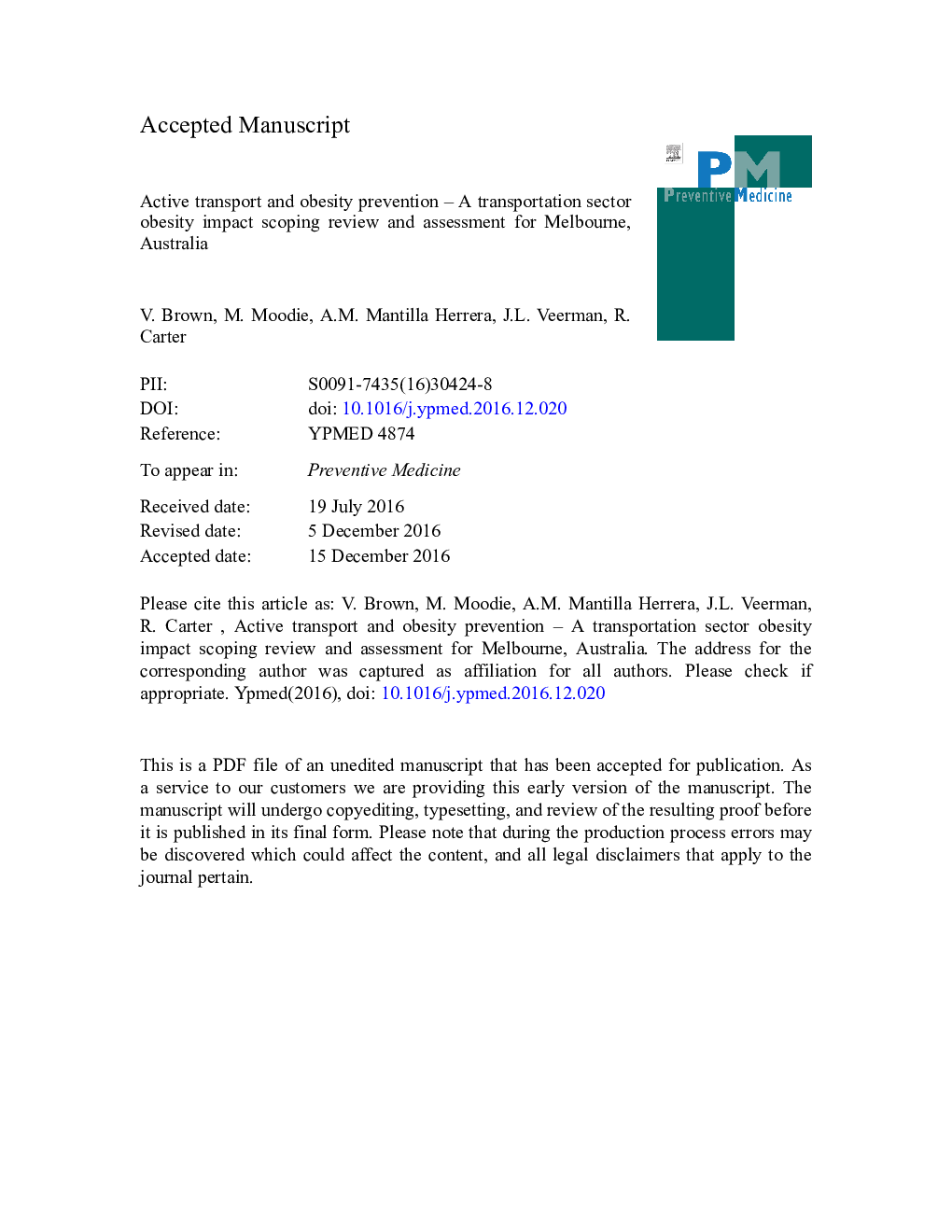| Article ID | Journal | Published Year | Pages | File Type |
|---|---|---|---|---|
| 5635704 | Preventive Medicine | 2017 | 50 Pages |
Abstract
Results suggest that evidence for an obesity effect of transport behaviours is inconclusive (29% of published studies reported expected associations, 33% mixed associations), and any potential BMI effect is likely to be relatively small. Hypothetical scenario analyses suggest that active transport interventions may contribute small but significant obesity-related health benefits across populations (approximately 65 health adjusted life years gained per year). Therefore active transport interventions that are low cost and targeted to those most amenable to modal switch are the most likely to be effective and cost-effective from an obesity prevention perspective. The uncertain but potentially significant opportunity for health benefits warrants the collection of more and better quality evidence to fully understand the potential relationships between transport behaviours and obesity. Such evidence would contribute to the obesity prevention dialogue and inform policy across the transportation, health and environmental sectors.
Keywords
Related Topics
Health Sciences
Medicine and Dentistry
Complementary and Alternative Medicine
Authors
V. Brown, M. Moodie, A.M. Mantilla Herrera, J.L. Veerman, R. Carter,
